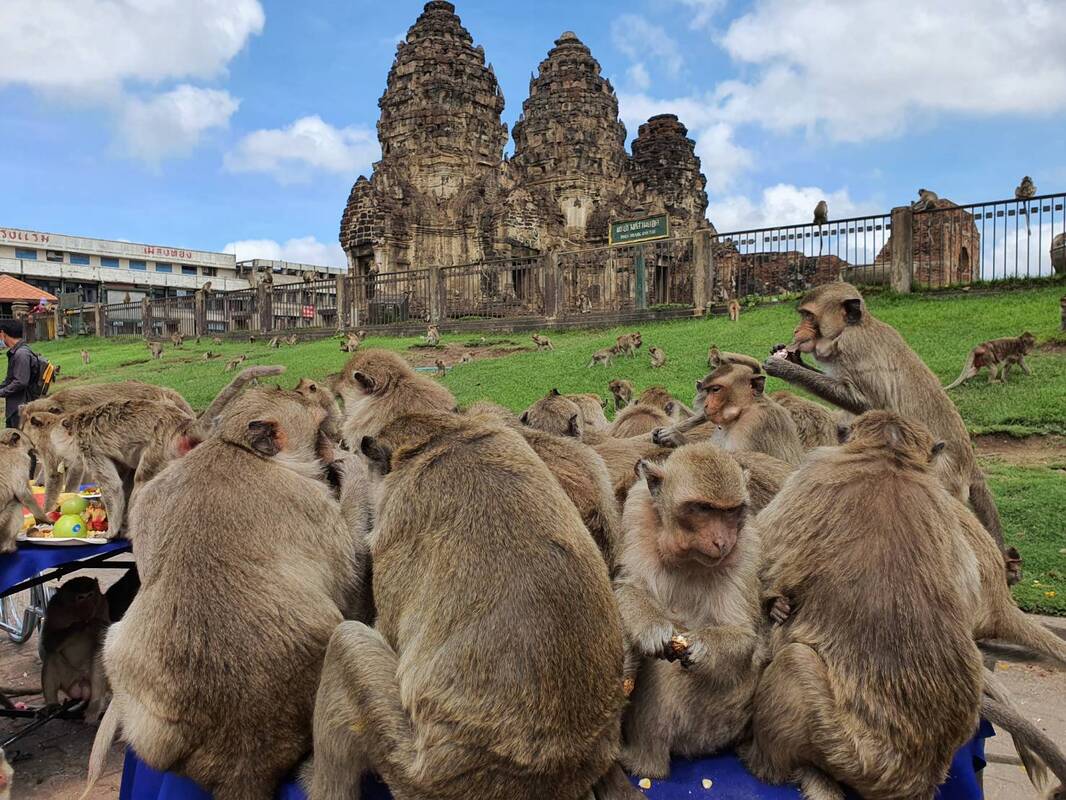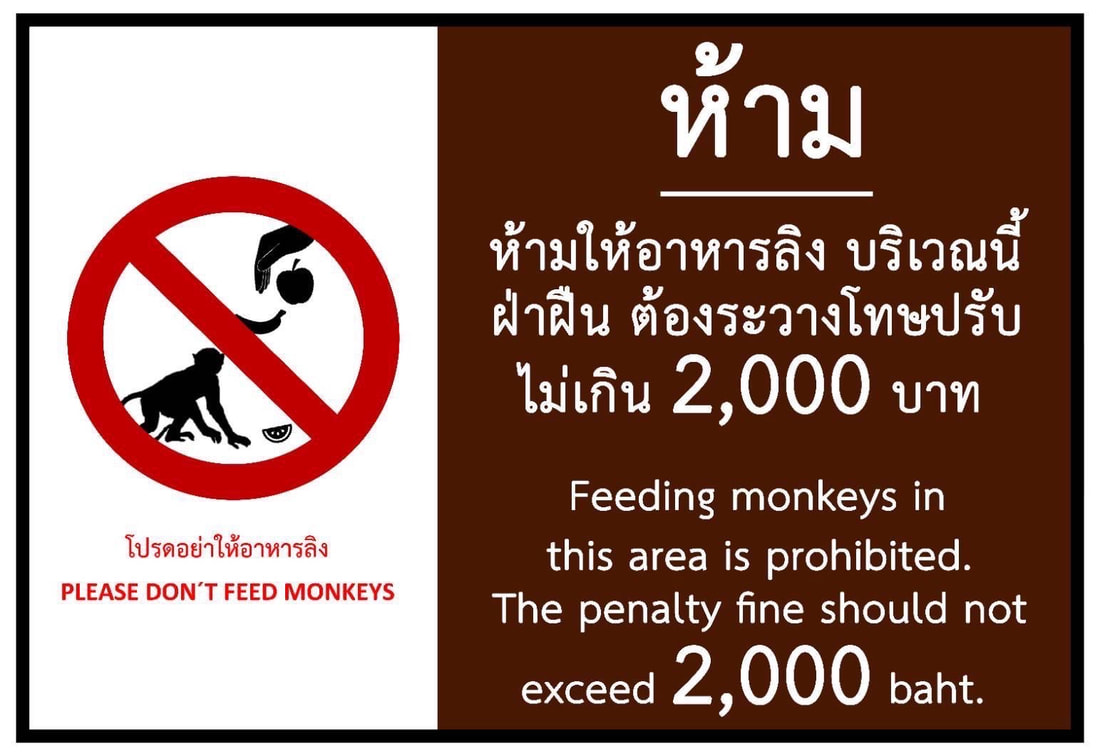The presence of monkeys in Lopburi Province, central Thailand, has long captivated tourists visiting popular attractions. However, these mischievous primates have been causing inconveniences for locals, engaging in food theft and territorial fights that lead to traffic disruptions. To address this issue, Dr. Jaroon Chukiatwattana, the veterinarian of Lopburi, has initiated a comprehensive plan to bring order to the monkey population. A recent event held at Pibulwittayalai School marked the beginning of this endeavor, gathering various stakeholders and preparing for an accurate population count.
Counting the Monkey Population: On July 11, representatives from the Protected Areas Regional Office 1 (Saraburi), the Department of National Parks, Wildlife and Plant Conservation, the Department of Livestock Development (Lopburi), teachers, students from Pibulwittayalai School, citizen-led committees, the Lopburi Municipality Office, and other participating organizations joined forces to initiate the monkey population survey. The objective was to establish order and control the situation effectively
Counting the Monkey Population: On July 11, representatives from the Protected Areas Regional Office 1 (Saraburi), the Department of National Parks, Wildlife and Plant Conservation, the Department of Livestock Development (Lopburi), teachers, students from Pibulwittayalai School, citizen-led committees, the Lopburi Municipality Office, and other participating organizations joined forces to initiate the monkey population survey. The objective was to establish order and control the situation effectively
Survey Locations and Method: Scheduled to commence on July 18-19, the survey will encompass four primary sites: Phra Prang Sam Yot, Manohra Market, Chayo Wanich Store, and San Phra Kan. The investigation will span two days, with all sites being thoroughly examined on the first day and repeated on the second day. This systematic approach will enable accurate data collection and help inform future management strategies.
Tourist Police Involvement: Recognizing the role of tourists in exacerbating the situation, the Lopburi Tourist Police have taken steps to educate visitors about responsible behavior around monkeys. Officers have been dispatched to popular tourist sites such as Phra Prang Sam Yot, San Phra Kan, the sidewalk in front of Van Station, Prang Khaek Shrine, and the traffic intersection. Their primary task is to instruct tourists not to feed the monkeys outside of designated areas. Initial reports indicate that tourists have responded positively to these instructions, showing a willingness to cooperate.
Encouraging Responsible Practices: By emphasizing designated feeding areas, authorities hope to create a safer and more controlled environment for both tourists and locals. The collaborative efforts of the Lopburi Municipality, law enforcement, and other concerned organizations aim to strike a balance between preserving the tourist appeal of these monkey-inhabited sites while minimizing the negative impact on the lives of local residents.
Conclusion: Addressing the challenges posed by the monkey population in Lopburi Province, Thailand, requires a multi-faceted approach. The ongoing population survey and increased awareness among tourists are important steps toward managing the situation effectively. With continued efforts, it is hoped that the harmonious coexistence between humans and monkeys can be achieved, ensuring the well-being of all parties involved in this unique part of Thailand's cultural heritage.
Tourist Police Involvement: Recognizing the role of tourists in exacerbating the situation, the Lopburi Tourist Police have taken steps to educate visitors about responsible behavior around monkeys. Officers have been dispatched to popular tourist sites such as Phra Prang Sam Yot, San Phra Kan, the sidewalk in front of Van Station, Prang Khaek Shrine, and the traffic intersection. Their primary task is to instruct tourists not to feed the monkeys outside of designated areas. Initial reports indicate that tourists have responded positively to these instructions, showing a willingness to cooperate.
Encouraging Responsible Practices: By emphasizing designated feeding areas, authorities hope to create a safer and more controlled environment for both tourists and locals. The collaborative efforts of the Lopburi Municipality, law enforcement, and other concerned organizations aim to strike a balance between preserving the tourist appeal of these monkey-inhabited sites while minimizing the negative impact on the lives of local residents.
Conclusion: Addressing the challenges posed by the monkey population in Lopburi Province, Thailand, requires a multi-faceted approach. The ongoing population survey and increased awareness among tourists are important steps toward managing the situation effectively. With continued efforts, it is hoped that the harmonious coexistence between humans and monkeys can be achieved, ensuring the well-being of all parties involved in this unique part of Thailand's cultural heritage.
|
|
|
|






